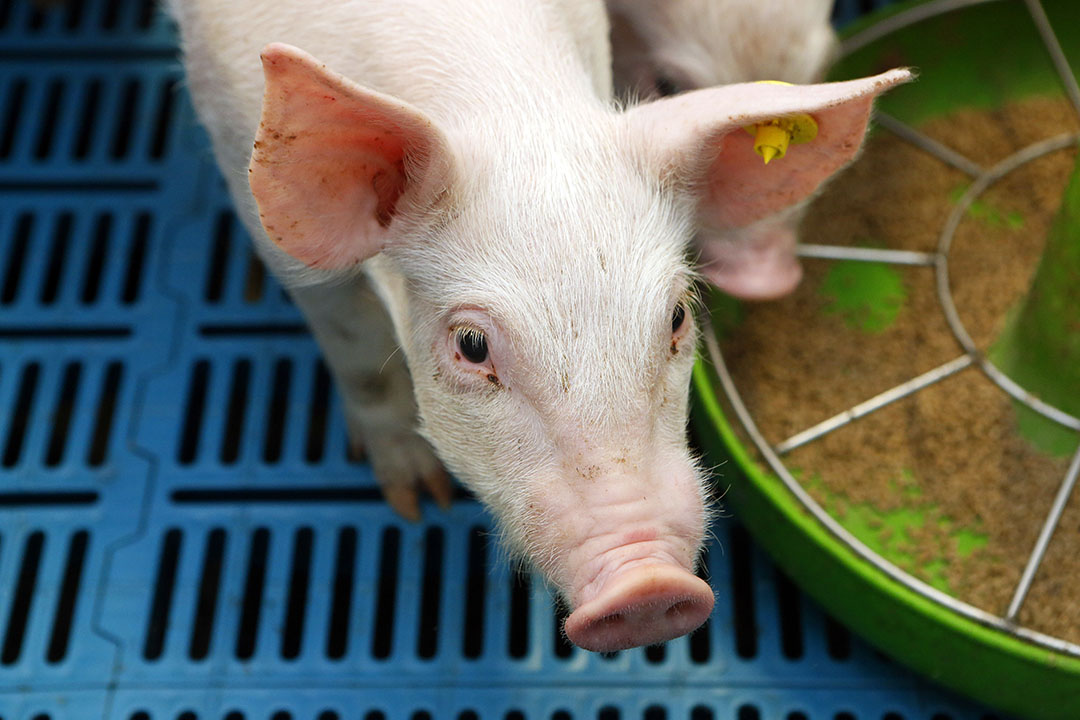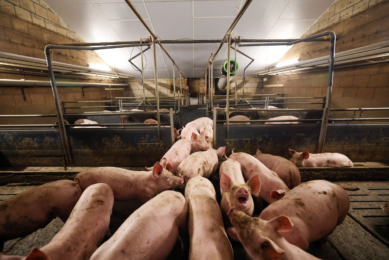Stronger pigs with algae-derived β-glucan

In the ideal situation when a pig is challenged with an E. coli infection, the infection is stopped by having a strong immune response, followed by a prompt reversion to normal growth. The use of algae-derived ß-glucan can help do this.
β-glucans are a heterogeneous group of polysaccharides naturally present in cereal grains, fungi, seaweed, and algae and are known to have anti-tumor and immunomodulatory effects in vitro, although not all types of β-glucans exhibit similar immune-modulatory effects.
Euglena gracilis algae
Currently, the majority of commercially available β-glucans are derived from yeast, whereas limited research have been conducted on algae-derived β-glucan in pigs. The β-glucans extracted from algae Euglena gracilis are linked by (1,3)-glycosidic bonds and are categorised as paramylon. Earlier research showed that β-glucan from algae Euglena gracilis strongly stimulated porcine leukocytes in vitro. Therefore, researchers wanted to know if supplementation of algae Euglena gracilis-derived β-glucan could modulate immune responses and gut integrity, and with this enhance disease resistance and health of weaned pigs. The objectives of this study were to investigate the effects of algae-derived β-glucan on diarrhoea, gut permeability and immune responses of weaned pigs experimentally infected with F18 E. coli. The study was published in the Journal of Animal Feed Science and Technology.
3 dietary treatments
A total of 36 weaning pigs (21 days old) with an equal number of gilts and barrows and an average initial body weight (BW) of 7.69 ± 0.77 kg were selected from the Swine Teaching and Research Center of the University of California, Davis. The sows and piglets used in this experiment did not receive E. coli vaccines, antibiotic injections, or antibiotics in creep feed. After weaning, all pigs were randomly assigned to one of 3 dietary treatments:
1) a complex nursery basal diet as the control diet
2) a complex nursery basal diet including 54 mg/kg (low dose) of algae-derived β-glucan
3) a complex nursery basal diet including 108 mg/kg (high dose) of algae-derived β-glucan
All diets met the current estimates for nutrient requirements for nursery pigs (NRC, 2012). Spray-dried plasma, antibiotics, and zinc oxide were not included in the diets. The experimental diets were fed to pigs as a mash form throughout the experiment. The β-glucan used in this experiment was ProGlucan™ (dried algae Euglena gracilis) and provided by Algal Scientific, USA (Plymouth, MI), part of Kemin. The product contained around 50% β-glucan, in which 95% was β-1,3-glucan. After 5 days adaptation, all pigs were orally inoculated with 3 mL of F18 E. coli for 3 consecutive days from d 0 post-inoculation (PI).
Acceleration of infection recovery
Results of this experiment revealed that inclusion of high dose β-glucan reduced frequency of diarrhoea (29.01% vs. 17.28%) for the entire experimental period. The feed supplementation of approximately 108 mg/kg of algae-derived β-glucan alleviated diarrhoea of F18 E. coli infected pigs by enhancing gut integrity. Feeding algae-derived β-glucan also boosted host immune response against E. coli infection. The β-glucan product stimulated T cell activation and reduced inflammation and, therefore, may accelerate the recovery of pigs from E. coli infection. The use of algae-derived β-glucan will promote weaned pig health and increase profitability of pork producers as the use of antibiotics in feed is restricted.











